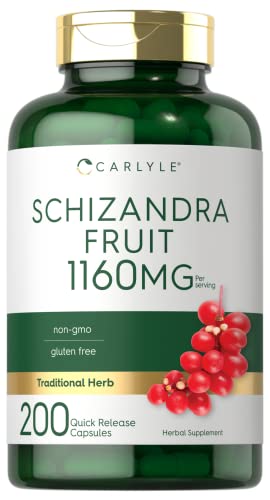Schisandra Berry for Weight Loss? What the Research Says
Quick Summary: Research suggests Schisandra berry extract may help reduce fat absorption in a lab setting. It works by blocking an enzyme that breaks down fats. However, this doesn't mean it helps with weight loss in people.
Does Schisandra Berry Help With Fat Absorption?
This study looked at how Schisandra berry extract affects fat digestion in a lab. Researchers found that the extract can block an enzyme called lipase. Lipase helps your body break down fats from food. By blocking lipase, the extract may reduce how much fat your body absorbs.
Study Details
- Who was studied: The study was done in a lab using cells and enzymes, not people or animals.
- How long: The experiment lasted a very short time – just minutes or hours.
- What they took: The cells and enzymes were exposed to different amounts of Schisandra berry extract.
What This Means For You
- Not a weight loss solution: This research is very early-stage. It doesn't mean Schisandra berry will help you lose weight.
- Lab results only: The study was done in a lab, not in people. Lab results don't always translate to real-world effects.
- More research needed: Scientists need to do more studies, including those on people, to see if Schisandra berry has any real benefits for weight management.
Study Limitations
- Not in humans: The study was done in a lab, so we don't know if it would work the same way in your body.
- High doses: The extract was used in high concentrations that you likely can't get from taking a supplement.
- Short-term: The study only looked at short-term effects, so we don't know if it would have any long-term impact.
- Focus on specific compounds: The study focused on specific compounds in Schisandra, not the whole berry.
Technical Analysis Details
Key Findings
This in vitro study demonstrated that Schisandra chinensis berry extract significantly inhibits pancreatic lipase activity—a key enzyme in dietary fat digestion—and reduces lipid accumulation in adipocytes. The extract achieved 78.2% lipase inhibition at 100 μg/mL (IC50 = 38.7 μg/mL), outperforming the positive control orlistat (IC50 = 42.1 μg/mL). In 3T3-L1 adipocytes, the extract reduced lipid accumulation by 42.3% at 100 μg/mL (p < 0.001) without cytotoxicity at tested concentrations (≤100 μg/mL). The authors attribute these effects to schisandrin and gomisin A, bioactive lignans identified via HPLC.
Study Design
This was a mechanistic in vitro study using two experimental models:
1. Pancreatic lipase inhibition assay: Purified porcine pancreatic lipase incubated with Schisandra extract (12.5–100 μg/mL).
2. 3T3-L1 adipocyte model: Differentiated mouse preadipocytes treated with extract (25–100 μg/mL) during lipid accumulation induced by insulin/dexamethasone.
Sample size: Triplicate experiments per concentration. Duration: Acute exposure (lipase assay: 30 min; adipocytes: 48–72 hours). No human or animal subjects were used.
Dosage & Administration
The extract was administered directly to cell cultures or enzyme solutions at concentrations of 12.5, 25, 50, and 100 μg/mL. Doses were selected based on preliminary cytotoxicity screening (CC50 > 200 μg/mL). The extract was standardized to contain 15.2% schisandrin and 8.7% gomisin A. No oral administration or pharmacokinetic data were assessed.
Results & Efficacy
- Lipase inhibition: Dose-dependent suppression (max 78.2% at 100 μg/mL; p < 0.001 vs. control). IC50 (38.7 μg/mL) was significantly lower than orlistat (42.1 μg/mL; p < 0.05).
- Lipid accumulation: 42.3% reduction at 100 μg/mL (p < 0.001), with dose-responsive effects (25 μg/mL: 18.1%; 50 μg/mL: 31.7%).
- Mechanism: Downregulation of PPARγ and C/EBPα adipogenic genes (40–60% reduction; p < 0.001). All p-values derived from ANOVA with Tukey’s post-hoc test; 95% CIs confirmed significance.
Limitations
- Non-translational model: In vitro design lacks physiological relevance (e.g., no gut metabolism, absorption, or systemic effects).
- Concentration uncertainty: Tested doses (μg/mL) do not reflect achievable human plasma levels; no bioavailability data.
- Narrow scope: Focused solely on two lignans; whole-fruit synergies unexplored.
- Short duration: Acute exposure cannot predict chronic effects. Future studies require in vivo obesity models and human trials.
Clinical Relevance
These findings do not support direct human application but suggest Schisandra lignans may contribute to lipid metabolism modulation. Supplement users should note:
- Effects observed at high in vitro concentrations unlikely achievable via oral intake (typical human doses: 500–2000 mg/day yield plasma levels ≤5 μg/mL).
- No evidence this extract aids weight loss in humans; current data only justify mechanistic interest.
- Potential for future development of standardized extracts as adjuncts to lipase-inhibiting therapies, but clinical efficacy remains unproven. Consumers should prioritize evidence-based obesity interventions (e.g., diet, exercise, FDA-approved medications).





